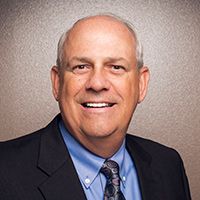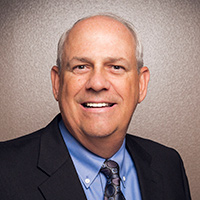Why Your Financial Professionals Should Work Together
If you have a financial adviser, an accountant and an attorney, they should communicate with each other to help design your best financial strategy.

Profit and prosper with the best of Kiplinger's advice on investing, taxes, retirement, personal finance and much more. Delivered daily. Enter your email in the box and click Sign Me Up.
You are now subscribed
Your newsletter sign-up was successful
Want to add more newsletters?

Delivered daily
Kiplinger Today
Profit and prosper with the best of Kiplinger's advice on investing, taxes, retirement, personal finance and much more delivered daily. Smart money moves start here.

Sent five days a week
Kiplinger A Step Ahead
Get practical help to make better financial decisions in your everyday life, from spending to savings on top deals.

Delivered daily
Kiplinger Closing Bell
Get today's biggest financial and investing headlines delivered to your inbox every day the U.S. stock market is open.

Sent twice a week
Kiplinger Adviser Intel
Financial pros across the country share best practices and fresh tactics to preserve and grow your wealth.

Delivered weekly
Kiplinger Tax Tips
Trim your federal and state tax bills with practical tax-planning and tax-cutting strategies.

Sent twice a week
Kiplinger Retirement Tips
Your twice-a-week guide to planning and enjoying a financially secure and richly rewarding retirement

Sent bimonthly.
Kiplinger Adviser Angle
Insights for advisers, wealth managers and other financial professionals.

Sent twice a week
Kiplinger Investing Weekly
Your twice-a-week roundup of promising stocks, funds, companies and industries you should consider, ones you should avoid, and why.

Sent weekly for six weeks
Kiplinger Invest for Retirement
Your step-by-step six-part series on how to invest for retirement, from devising a successful strategy to exactly which investments to choose.
If you've already managed to set yourself up with financial professionals you trust—a competent investment adviser, an accountant and an attorney—congratulations. You're way ahead of most people when it comes to planning your future.
Unfortunately, you may still not be where you need to be.
Even if those advisers are very good at what they do, if they aren't talking to each other and connecting on your behalf, you're probably not getting the most from your team.
From just $107.88 $24.99 for Kiplinger Personal Finance
Become a smarter, better informed investor. Subscribe from just $107.88 $24.99, plus get up to 4 Special Issues

Sign up for Kiplinger’s Free Newsletters
Profit and prosper with the best of expert advice on investing, taxes, retirement, personal finance and more - straight to your e-mail.
Profit and prosper with the best of expert advice - straight to your e-mail.
Instead, picture yourself at the center of a sturdy triangle.
At the top, there is a top-notch investment adviser—someone who does more than just transactions, who understands income planning and how taxes can impact your money long-term.
At the bottom left is a trusted accountant who not only does tax preparation, but also is truly knowledgeable about tax planning. There is a difference. While tax preparation happens once a year during tax time, tax planning happens year round. Typically things happen throughout the year that will affect the amount you have to pay in taxes come April. The goal is to reduce the amount of taxes paid by making deliberate choices throughout the year.
And at the bottom right, there's an attorney who can make sure your legal house is in order and you have the proper will or trust in place. Proper estate planning is critical, even though we find it rarely makes it to the top of anyone's to-do list.
There are those who shut down as soon as you use the term "estate." They say, "I don't have an estate; Bill Gates has an estate." In reality, everyone has an estate; they are just different sizes. Who's responsible for yours? You are.
All the corners of the financial triangle should connect to form a strong team. Even if you are working with each of these professionals, they may not be actively communicating with one another. When this is the case, the right hand doesn't know what the left hand is doing, and that can be to your detriment.
When I get together with clients or prospective clients, along with their accountants and attorneys, we each bring our knowledge to the table, and the clients are amazed. Prospective clients often become clients soon after these meetings because someone may have never brought these three important professionals together to form a comprehensive retirement plan for them.
Some advisers feel that if they teach their clients too much, those clients won't need them anymore. I find it to be the exact opposite. The more I educate them, the more value I bring to them.
I always ask people the seven questions every investor should know about their investments:
- Why do you have each investment?
- How do they work?
- Do you know what you're invested in?
- What fees are you paying?
- What are the tax advantages or disadvantages to each investment?
- What income might you expect from each investment either now or in the future?
- What is your exit strategy?
When I ask these questions, I get the same three-word response every time: I don't know.
You should know. This is your future. Your retirement. Your legacy.
Put yourself in the center of a financial triangle and set yourself on the path to financial independence!
Jeff Dixson is the founder, president and CEO of Northwest Financial and Tax Solutions, Inc. He hosts a weekly radio show, "The Jeff Dixson Show: The Retirement Coach," and is the author of "Winning the Retirement Game." As a financial adviser and insurance professional, Dixson believes in preservation of principal and using strategic financial vehicles to generate growth and income.
Securities offered through Madison Avenue Securities, LLC (MAS), member FINRA & SIPC. MAS and Northwest Financial & Tax Solutions are not affiliated companies.
Kim Franke-Folstad contributed to this article.
Profit and prosper with the best of Kiplinger's advice on investing, taxes, retirement, personal finance and much more. Delivered daily. Enter your email in the box and click Sign Me Up.

Jeff Dixson is president and CEO at Northwest Financial and Tax Solutions Inc. and is an Investment Adviser Representative and insurance professional. He hosts a weekly radio show, "The Jeff Dixson Show: The Retirement Coach," and is the author of "Winning the Retirement Game."
-
 5 Vince Lombardi Quotes Retirees Should Live By
5 Vince Lombardi Quotes Retirees Should Live ByThe iconic football coach's philosophy can help retirees win at the game of life.
-
 The $200,000 Olympic 'Pension' is a Retirement Game-Changer for Team USA
The $200,000 Olympic 'Pension' is a Retirement Game-Changer for Team USAThe donation by financier Ross Stevens is meant to be a "retirement program" for Team USA Olympic and Paralympic athletes.
-
 10 Cheapest Places to Live in Colorado
10 Cheapest Places to Live in ColoradoProperty Tax Looking for a cozy cabin near the slopes? These Colorado counties combine reasonable house prices with the state's lowest property tax bills.
-
 Don't Bury Your Kids in Taxes: How to Position Your Investments to Help Create More Wealth for Them
Don't Bury Your Kids in Taxes: How to Position Your Investments to Help Create More Wealth for ThemTo minimize your heirs' tax burden, focus on aligning your investment account types and assets with your estate plan, and pay attention to the impact of RMDs.
-
 Are You 'Too Old' to Benefit From an Annuity?
Are You 'Too Old' to Benefit From an Annuity?Probably not, even if you're in your 70s or 80s, but it depends on your circumstances and the kind of annuity you're considering.
-
 In Your 50s and Seeing Retirement in the Distance? What You Do Now Can Make a Significant Impact
In Your 50s and Seeing Retirement in the Distance? What You Do Now Can Make a Significant ImpactThis is the perfect time to assess whether your retirement planning is on track and determine what steps you need to take if it's not.
-
 Your Retirement Isn't Set in Stone, But It Can Be a Work of Art
Your Retirement Isn't Set in Stone, But It Can Be a Work of ArtSetting and forgetting your retirement plan will make it hard to cope with life's challenges. Instead, consider redrawing and refining your plan as you go.
-
 The Bear Market Protocol: 3 Strategies to Consider in a Down Market
The Bear Market Protocol: 3 Strategies to Consider in a Down MarketThe Bear Market Protocol: 3 Strategies for a Down Market From buying the dip to strategic Roth conversions, there are several ways to use a bear market to your advantage — once you get over the fear factor.
-
 For the 2% Club, the Guardrails Approach and the 4% Rule Do Not Work: Here's What Works Instead
For the 2% Club, the Guardrails Approach and the 4% Rule Do Not Work: Here's What Works InsteadFor retirees with a pension, traditional withdrawal rules could be too restrictive. You need a tailored income plan that is much more flexible and realistic.
-
 Retiring Next Year? Now Is the Time to Start Designing What Your Retirement Will Look Like
Retiring Next Year? Now Is the Time to Start Designing What Your Retirement Will Look LikeThis is when you should be shifting your focus from growing your portfolio to designing an income and tax strategy that aligns your resources with your purpose.
-
 I'm a Financial Planner: This Layered Approach for Your Retirement Money Can Help Lower Your Stress
I'm a Financial Planner: This Layered Approach for Your Retirement Money Can Help Lower Your StressTo be confident about retirement, consider building a safety net by dividing assets into distinct layers and establishing a regular review process. Here's how.